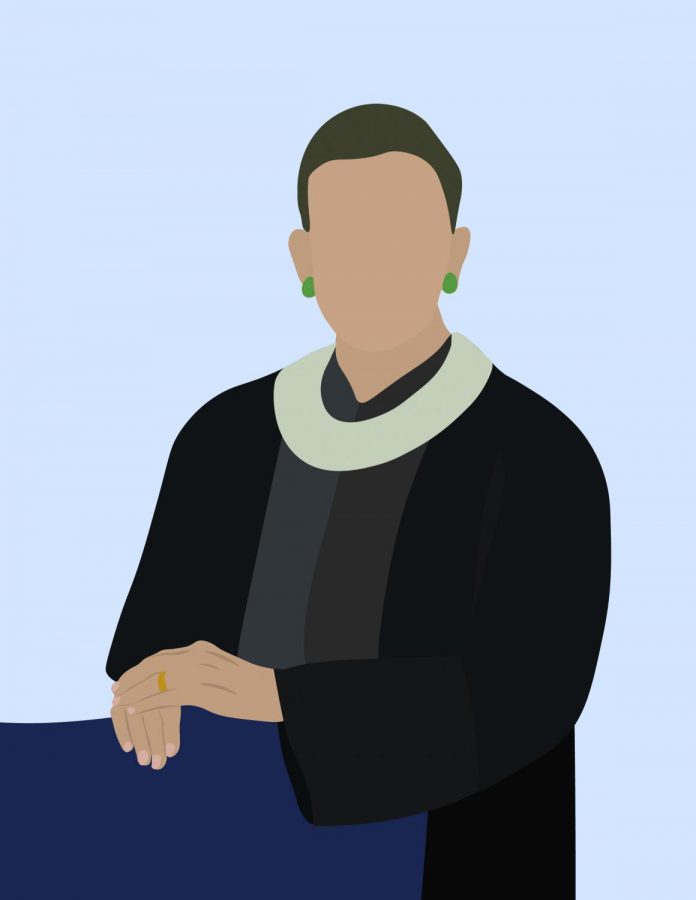In memoriam: Ruth Bader Ginsburg’s legacy
Lincoln students recognize RBG for the legacy she left. They admire her perseverance when fighting for women’s rights, and how she inspired young women everywhere.
On Sept. 18, 2020, we lost one of the most influential women of our time. Although Ruth Bader Ginsburg is most known for her work on the Supreme Court of the United States (SCOTUS), she also changed the lives of people across the nation with the work she completed as a litigator for the American Civil Liberties Union (ACLU).
Born and raised in Brooklyn, New York, Ginsburg always excelled in her studies. She graduated top of her class at Cornell University and was one only a few females in her year at Harvard Law School. She later transferred to Columbia University where she again graduated top of her class.
Despite her outstanding academic record, Ginsburg still struggled to find a job. With gender discrimination extremely prevalent in the U.S at the time, even males with far fewer qualifications were receiving the positions she applied for. Being subject to this discrimination, Ginsburg decided to do something to change it.
The journey to equality was long, and is still not finished, but Ginsburg’s work for the Women’s Rights Project of the ACLU was crucial in getting us to where we are today. She founded the project in 1972 and during her time there she argued six cases on gender equality before the Supreme Court, most famously proving that the law was gender-blind in a case concerning benefits entitled to widows.
After being appointed to the SCOTUS by President Bill Clinton, Ginsburg continued her fight for gender equality, writing the majority opinion for United States v. Virginia which held that women could not be denied entry to the Virginia Military Institute on account of their gender. She also cast votes in pivotal cases for American rights, dissenting in cases upholding abortion restrictions as in Gonzales v. Carhart, and joining the majority on same-sex couples’ right to marry someone of the same sex in cases like Windsor v. U.S. and Hollingsworth v. Perry. She continued to write decisions up until her death, when she lost her battle with cancer.
Ginsburg left a huge mark on our world; her story is told in books, articles, and even movies. Her legacy is recognized by many, including students at Lincoln.
Senior Mia Crutchfield says that “the fact that she was a feminist” stands out most to her in Ginsburg’s legacy, freshman Juliet Zimm recognizes “her incredible persistence,” and freshman Kiera Saavedra admires how “she never stopped trying to get a job as a lawyer.”
Saavedra also sees Ginsburg’s greatest accomplishment as “all the things she did to help women gain more rights,” while Crutchfield admires her tenure on the court.
Ginsburg impacted generations of students. Lincoln graduate Will Cozine says “her impact on the millions of young women she inspired,” is her biggest accomplishment.
Justice Ruth Bader Ginsburg changed our world for the better, and she will be remembered for the amazing women she was by students at Lincoln.

